
CPRIT grants entice three cancer researchers to Rice
Rice University recruits three professors to bolster cancer research with grants from the Cancer Prevention and Research Institute of Texas.

CPRIT grants entice three cancer researchers to Rice
Rice University recruits three professors to bolster cancer research with grants from the Cancer Prevention and Research Institute of Texas.
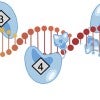
DAP array casts a wide net to fix mutations
Rice engineers introduce DAP, a streamlined CRISPR-based technology that can perform many genome edits at once to address polygenic diseases caused by more than one glitch.

Rice chemists skew the odds to prevent cancer
A theoretical framework by Rice University scientists shows how to increase the odds of identifying cancer-causing mutations before tumors take hold. They demonstrate that only a few energetically favorable pathways are likely to lead to cancer.

Rice ‘metalens’ could disrupt vacuum UV market
Rice photonics researchers have created a potentially disruptive technology for the ultraviolet optics market.

Faculty, staff, students honored for excellence in teaching, mentoring, service
Each year, Rice honors members of the university community who have served students through outstanding teaching, dedication and service.
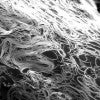
Rice scientists have developed an acid-based solvent that simplifies carbon nanotube processing.
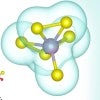
Rice lab improves recipe for valuable chemical
Rice University theorists show why salt gives a significant speed boost to valuable 2D molybdenum disulfide, an effect they say may work for other 2D materials as well.
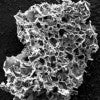
Treated plastic waste good at grabbing carbon dioxide
Rice University chemists treat waste plastic to absorb carbon dioxide from flue gas streams more efficiently than current processes.
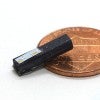
Blood vessels are guides for stimulating implants
A wireless neurostimulator a little bigger than a grain of rice can be put in place alongside blood vessels to treat neurological diseases and chronic pain.

Graphene gets enhanced by flashing
Rice University scientists who developed the flash Joule heating process to make graphene have found a way to produce doped graphene to customize it for applications.

US News grad school rankings give high marks to Rice programs
A total of 19 graduate programs at Rice University rank among the nation's top 25 in their categories in the latest edition of U.S. News and World Report’s “Best Graduate Schools.”
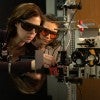
Closer look helps Rice lab ponder when a protein’s prone to wander
Rice chemists have discovered surface interactions could be tunable at the single-protein level

Faculty set Rice record with eight CAREER Awards
Rice faculty set a record, winning eight NSF CAREER Awards in 2002

Army touts Rice contribution to graphene collaboration
Rice's graphene research is making its presence felt in the U.S. Army’s work to develop applications using the single-atom-thick form of carbon.

Environmental champions win Rice grants
The Rice University Sustainable Futures Fund backs six projects to help bolster the planet’s environmental health.